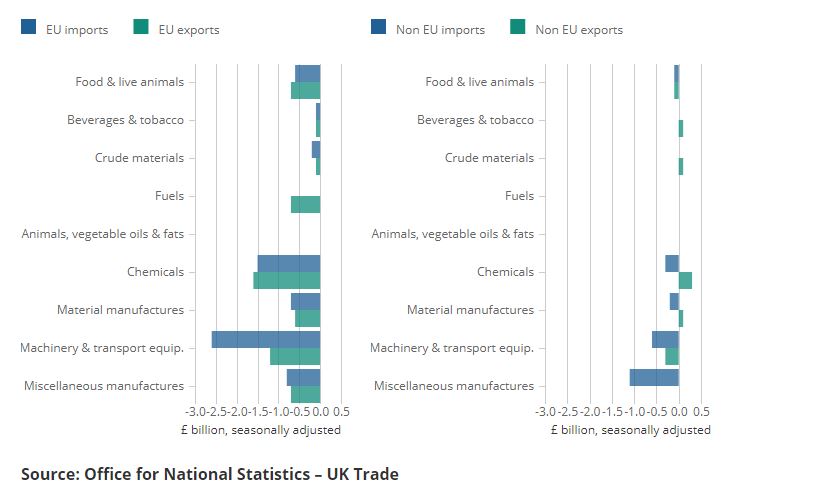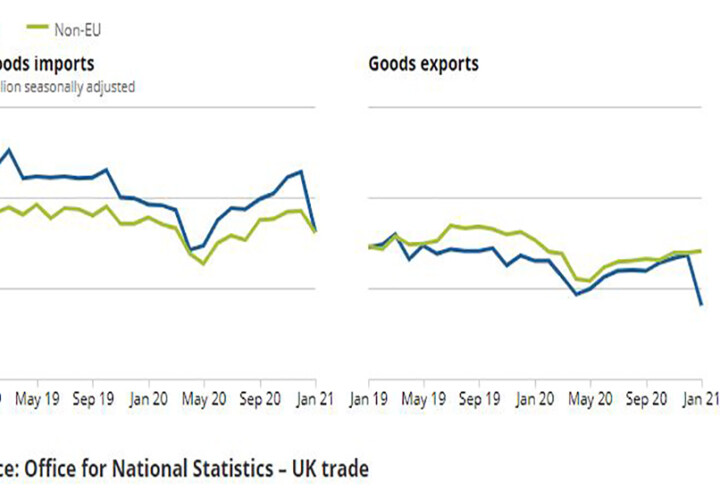UK goods exports to the European Union fell 40.7% in January, according to the Office for National Statistics (ONS), while imports also fell away by 28.8% in the first month of the new trade relationship, driven primarily by a drop in imports of cars and pharmaceuticals.
The figures are the first since the introduction of new trading rules between the UK and the EU and represent (in both current price and chained volume measures) the largest monthly falls for imports and exports since records began in January 1997.
The ONS reports that:
- Exports of goods, excluding non-monetary gold and other precious metals, fell by £5.3 billion (19.3%) in January 2021, because of a £5.6 billion (40.7%) fall in exports to the EU.
- Imports of goods, excluding non-monetary gold and other precious metals, fell by £8.9 billion (21.6%) in January 2021, driven by a £6.6 billion (28.8%) fall in imports from the EU.
- Falling imports of goods, excluding non-monetary gold and other precious metals, were largely seen in machinery and transport equipment, and chemicals from the EU in January 2021, particularly in imports of cars and medicinal and pharmaceutical products.

The ONS says there are several potential contributing factors to this slump in trade – including Brexit disruption and the current lockdown. The report also points to the fact that November and December 2020 saw increasing imports and exports of goods, particularly in machinery and transport equipment and chemicals, which many commentators viewed as stockpiling ahead of the Brexit deadline.
Despite the slow start for trade in January, data from the Business insights and impact on the UK economy suggests that importing and exporting began to increase towards the end of January. The proportion of businesses reporting that they were unable to export decreased by 5.4 percentage points between the reporting periods 11 January to 24 January and 25 January to 2 February. Similarly, the proportion of businesses reporting they were unable to import decreased by 3.0 percentage points between the same reporting periods.
A research note from the ONS also points out that the way the UK collects export data has changed since Brexit, and that some data will become available more slowly though they state, that that this is ‘unlikely’ to change the trend of the January movements.




